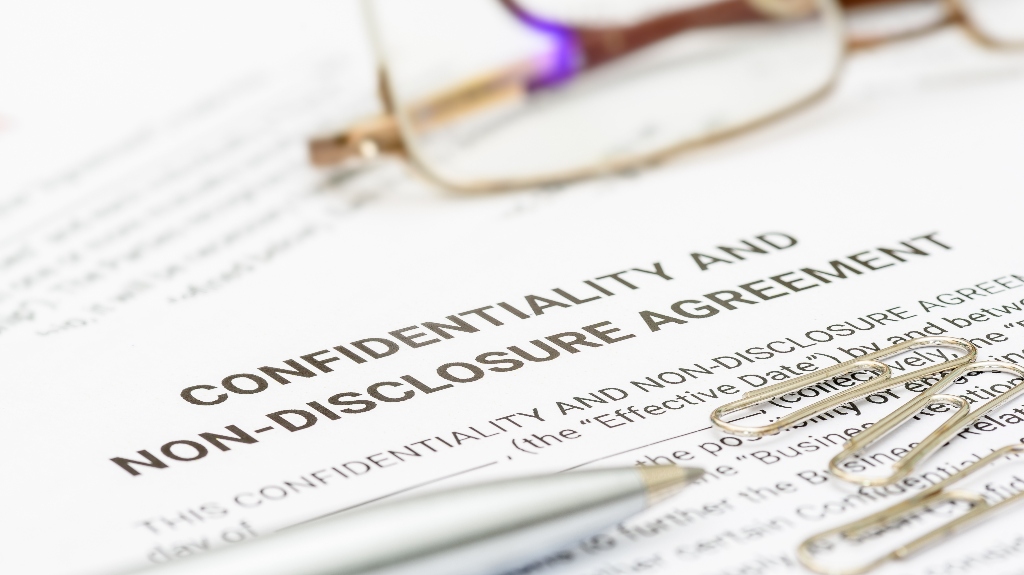
When you have a great idea, design, or business strategy, you may want to share it with the world. But that comes with a risk. And if you are not using the proper legal tools to protect what is yours, someone could steal your work.
Whether you’re an entrepreneur, a creative professional, or an established company, keeping certain information under wraps is important to your success. You may want to think about using non-disclosure agreements (NDAs). These are essential tools for confidentiality.
These legal contracts keep your sensitive information private. Here is what you need to know about properly using them.
What Is a Non-Disclosure Agreement?
A non-disclosure agreement (NDA) is a legal contract between parties to establish confidentiality for shared information. Many people use it to protect:
- Business plans
- Product prototypes
- Trade secrets
- Client lists
- Algorithms
- Source code
- Details of an upcoming launch
While some believe that NDAs are for large corporations, that is untrue. Small businesses, startups, and individual inventors can all benefit from these agreements.
NDAs are the first line of defense when protecting intellectual property that has not been copyrighted, patented, or trademarked.
What Are the Components of an NDA?
When you create an NDA, you will want to have some key elements, such as:
- Clear definition of confidential information: You need to be specific about what you want to protect. General language can lead to confusion and non-enforceability.
- Obligations of the receiving party: You need a section that outlines the rules. This should include what can and cannot be done with the information.
- Timeframe: Make sure to set a timeline for how long the information needs to stay confidential. Some NDAs have a set expiration date, while others remain in effect indefinitely.
- Exclusions: You don’t have to protect all information. Many NDAs exclude public knowledge or data that the recipient already had before the agreement.
- Consequences for a breach: You also need to specify what happens if a breach occurs. Strong enforcement language is important. Many people want injunctive relief or monetary damages for a violation.
Drafting an NDA is about clarity. Both parties should walk away from the agreement knowing their responsibilities and what is being protected.
Are NDAs Enforceable?
When the language is clear and fair, an NDA can be properly executed. Courts will uphold NDAs that are reasonable in scope and duration.
However, overly broad or vague agreements may not hold up. This can happen when an NDA attempts to limit someone’s right to work in a specific industry or silence employees from reporting misconduct.
When you work with an intellectual property law attorney, they can find the right balance for your NDA. You want one strong enough to protect you, but reasonable enough to stand up in court.
What Are Some NDA Mistakes?
In business, NDAs are one of the most frequently used legal tools. Unfortunately, they are also misunderstood. If you want to create a strong NDA, make sure to avoid these potential problems:

- Using boilerplate templates: A generic NDA downloaded from the internet will not always protect you. Many times, they may include clauses that do not apply to your situation.
- Failing to identify confidential information: If you do not clearly state what you want protected, you may be unable to enforce the agreement later.
- Not signing before disclosure: Timing matters. The agreement must be in place before any sensitive information is shared. Once you share it, you cannot go back to shield it.
For these reasons, you will want an experienced business contracts lawyer to draft the document, discuss the terms, and ensure that it can be enforced.
Get the Right Protection for Your Projects
Whether building a brand, developing a new invention, or collaborating with a third party, protecting your ideas is as important as creating them. Non-disclosure agreements protect your confidential information.
At Iconic Inc, we can create practical, enforceable NDAs that align with your goals and industry standards. If you are not sure where to begin or need help reviewing an agreement, we’re here to help. Your ideas deserve protection, and we will make sure they stay yours. Schedule a consultation today.
